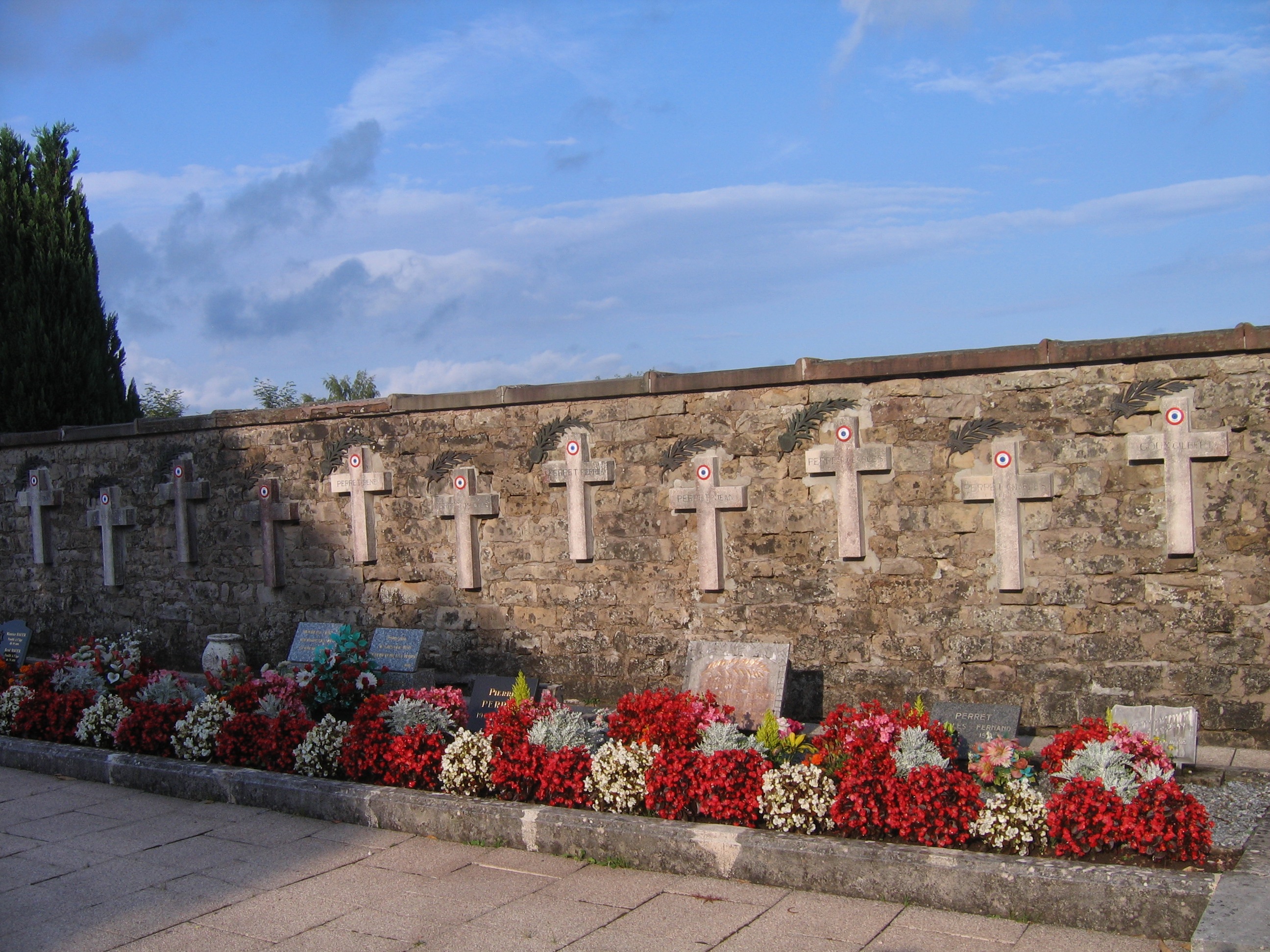Cannon Fire and Desparation
Saturday, September 23
The occupying troops were becoming more and more desparate, killing the Etobonais' cows where they stood to provide meat. Didn't the people of Etobon sense how in danger they were? Perhaps they did, but could do nothing to avoid what was coming. Jules Perret writes:
"Woke up to cannon fire. The battery at Bouloie is firing furiously. We’re getting the cattle ready to transport. It’s worse than the fair … The mayor was at Belfort, so in my role of deputy, I received those who were asking for favors. Here come four boches looking for one cow. Even though I told them that 50 were on the road to Belfort, they argued. One with glasses said to me, “Those won’t give us any meat. Show me the house where there are some cows left.” What a chore! I took them to Guemann’s, Paul and Marthe started crying. But what could I do? The boches took, weighed, paid for – with Vichy money – and killed a pretty heifer, right then and there. One of them dug a hole to bury the entrails.
"The Cossacks have attacked again and are trying to surround our maquis. They had to abandon Voisin, wounded, where he lay. Who will take care of him? (Emile Voisin was found dead in an attic, where, despite his broken leg and abdominal wound, he was able to crawl into for shelter.)
"Midnight. Jacques, back from Belfort, and I killed our pig to keep it safe from looters. We knocked it out and killed it near the rabbit cages, in the little shed , then dragged it through the orchard back to the stable."

 Katherine Douglass
Katherine Douglass